Mother shares how daughter, 11, was driven to suicide after getting addicted to social media
A heartbroken mother tells how her 11-year-old daughter committed suicide after becoming addicted to social media.
Tammy Rodriguez told how her daughter Selena was once an energetic young girl who “shone on stage with her dancing” and “lit up a whole room” in the years before she took her own life.
But that all changed when Selena became addicted to Instagram and Snapchat – she lost sleep because she was constantly scrolling through the social media sites, Tammy told NBC Miami.
The grieving mother has since filed a lawsuit against the two social media giants, blaming them for the death of her daughter in July 2021.
It is alleged that the companies “knowingly and intentionally designed, manufactured, marketed and sold social media products that were unreasonably dangerous because they were designed to be addictive to underage users.” reports the Washington Post.
Selena Rodriguez committed suicide at age 11 after becoming addicted to social media

She posted a video on Snapchat of herself taking her mother’s pills, which she later overdosed on
Rodriguez, from Connecticut, said Selena first started using technology when she was just 7 years old, watching videos on a tablet.
“As she got older, I got her a phone. At first it was just the games and the videos, but then you start to see a change,” she told NBC Miami.
“She wanted TikTok, and I just let her save the videos as drafts. She loved to dance. That was one of her big passions. She did that and she saved it.”
“But then she started sneaking around and posting things.”
Rodriguez said she thought she had access to Selena’s accounts, but her daughter created new accounts that she hid from her mother.
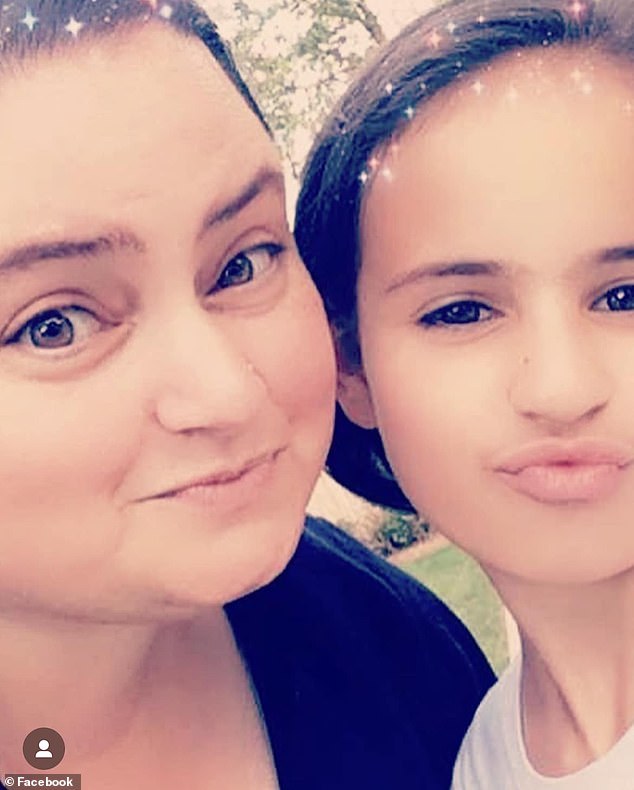
Her mother, Tammy Rodriguez, said she tried to control her daughter’s social media use
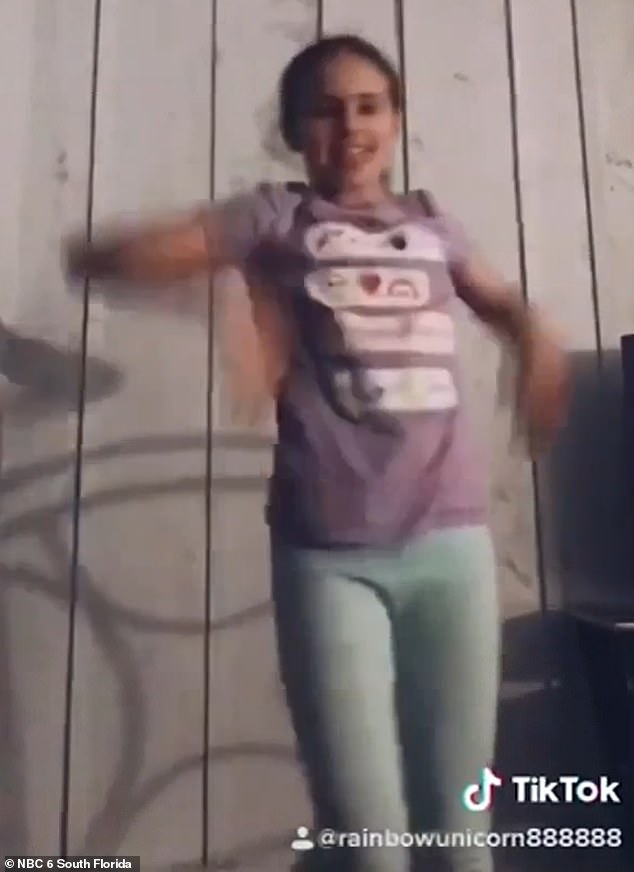
Rodriguez said she only gave her daughter TikTok to save dance videos
As she continued to visit these social media sites, Selena became aggressive, even attacking her older sister when her phone was taken away.
“She barely slept, she didn’t eat… she developed an eating disorder,” Rodriguez said.
‘Basically everything in her world depended on those devices. She didn’t want to go anywhere if she couldn’t take it with her.’
According to the Post, the situation has worsened during the COVID pandemic.
Selena increasingly skipped school, leading to an investigation by the Connecticut Department of Children and Families.
She was also admitted to the hospital for emergency psychiatric care and began to self-harm.
At one point, Rodriguez even tried to confiscate Selena’s devices, but that only led to the teen walking away so she could continue using social media, her federal lawsuit alleges.
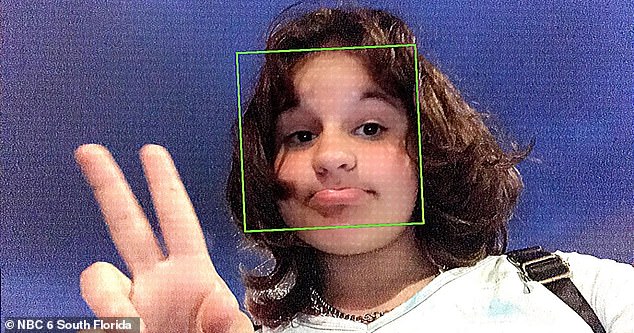
Selena’s social media addiction reportedly got worse during the COVID pandemic
Rodriguez eventually learned that her daughter was being bullied at school after photos Selena sent via Snapchat were leaked to her classmates.
She later discovered that adult men were approaching the 11-year-old girl via social media and Selena succumbed to the pressure to send sexually explicit images via Snapchat.
It was on that app that Selena posted a video in July 2021 of herself taking two of her mother’s Wellbutrin pills with a sip of soda while the NF song Paralyzed played in the background. according to the Intelligencer.
She overdosed on pills off-screen and died that night, in what her mother described as “horrible.”
“It’s something you would never dream could ever happen in your world,” she told NBC Miami, adding that she is still struggling with the loss of her daughter three years later.
“Every day is different,” Rodriguez said. “You don’t know where your emotions are going to be. You don’t know what your trigger is.”
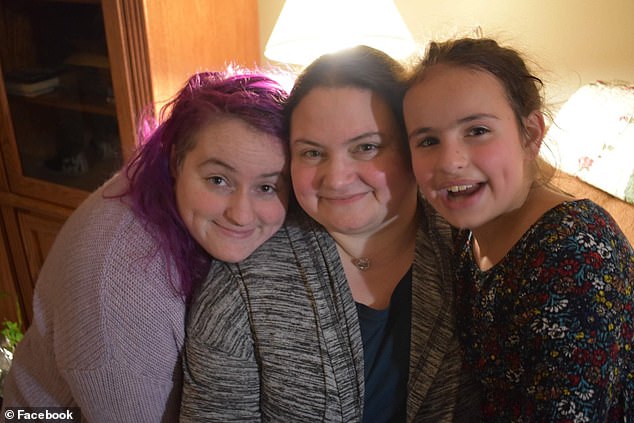
Tammy said Selena, right, became violent and once attacked her older sister
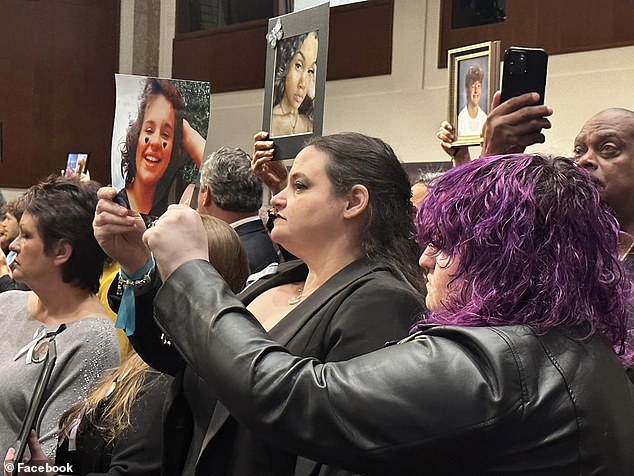
Rodriguez is now suing Meta – the parent company of Instagram – and Snap Inc. – the parent company of Snapchat – for contributing to her daughter’s mental health problems
Rodriguez’s federal lawsuit now alleges that both Meta — the parent company of Facebook and Instagram — and Snap — the parent company of Snapchat — are “responsible for causing and contributing to [a] growing mental health crisis for children and teens in the United States.’
DailyMail.com has contacted Meta and Snap for comment.
But in a statement to NBC Miami, a Meta spokesperson said, “We want to assure every parent that we take their interests seriously as we work to provide teens with a safe online experience.
“We’ve built more than 30 tools and features, including ways for parents to limit the time their kids spend on our apps, age-verification technology, automatic restrictions so kids under 16 don’t receive messages from people they don’t follow, and notifications that encourage teens to take regular breaks.”
A spokesperson for Snap Inc. also said the company could not comment “on specific details of this ongoing litigation,” but stressed that “nothing is more important to us than the well-being of our community.”
“We work closely with many mental health organizations to provide in-app tools and resources to Snapchat users as part of our ongoing efforts to keep our community safe.”
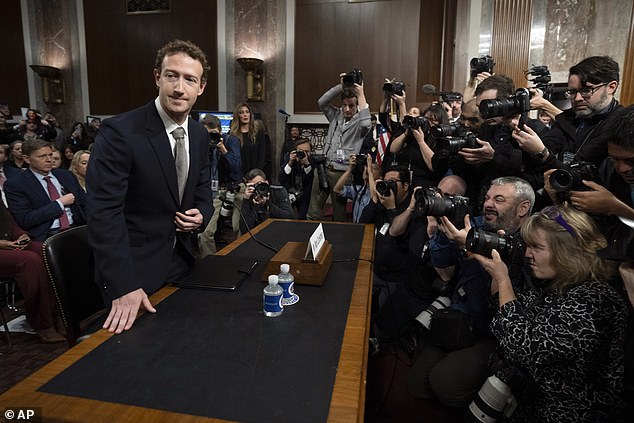
Meta CEO Mark Zuckerberg was forced to apologize to families who say social media contributed to their children’s suicide or self-harm during a congressional hearing in January
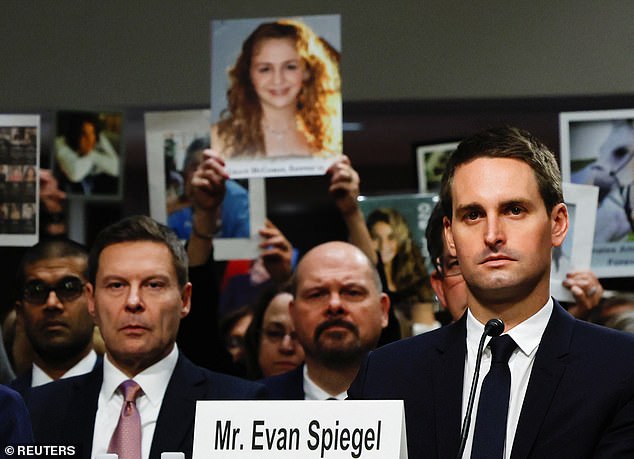
A Snapchat spokesperson stressed that they work with mental health organizations to provide in-app support. CEO Evan Spiegel is pictured during a Congressional hearing in January
Still, Rodriguez’s case would be the first in a multi-district litigation that has seen more than 100 parents and teens — and one of Seattle’s public schools — file lawsuits against the social media companies.
Thirty-three states are even set to sue Meta Platforms, alleging that the company has “profoundly altered the psychological and social realities of a generation of young Americans” by “trapping” them into addictive cycles through targeted algorithms.
According to experts, social media can have the same effect on people as alcohol or drugs.
“Part of that is recognizing that addiction is a brain disease — it’s a chronic, progressive, and potentially fatal process that is manageable,” said Dr. Adam Scioli.
“Unfortunately, it can get extremely dark there,” he continued.
“I mean, it’s not an exaggeration to compare this to any other substance use disorder, where the onset is seemingly innocent … it doesn’t seem risky.
‘On the other end of the spectrum, you could be terrorized or bullied by someone who disagrees with what you post. Both of these experiences can lead to a number of mental health issues and certainly a mental health crisis, which can lead to suicide.’
Scioli noted that teens are particularly susceptible to social media addiction because the human brain continues to develop until the age of 20 to 25, a process called “pruning.” Social media and substance abuse can disrupt that development.
According to the National Institutes of Health, nearly a quarter of teens say they are “constantly online,” while about half admit to being “addicted” to social media.
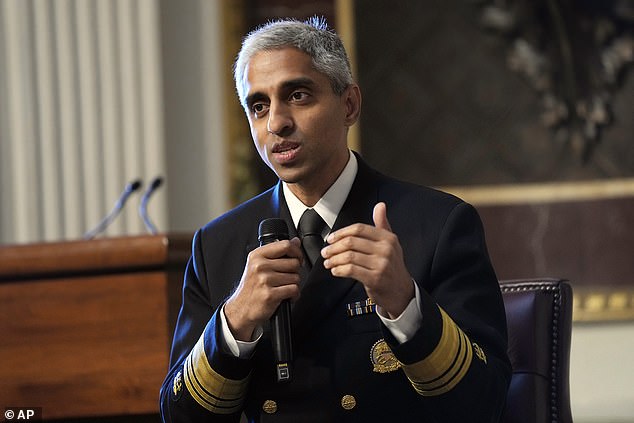
US Surgeon General Vivek Murthy is now calling on Congress to mandate warning labels on social media platforms
To address the mental health crisis, U.S. Surgeon General Vivek Murthy is calling on Congress to mandate warning labels on social media platforms.
In Florida, Governor Ron DeSantis also signed a bill banning anyone under the age of 14 from using social media.
And in Congress, senators questioned Meta CEO Mark Zuckerberg, TikTok CEO Shou Zi Chew, Discord CEO Jason Citron, X CEO Linda Yaccarino, and Snapchat founder Evan Spiegel about how they protect minors on their apps.
Social media bosses insisted they are doing everything they can to protect young people from inappropriate content, but admitted that the size and scope of their products means they cannot always monitor all accounts.
During the hearings, Zuckerberg was required to apologize to the many families who say social media contributed to their children’s suicide or self-harm.
“I’m sorry for everything that you’ve all been through,” he said. “It’s horrible. No one should have to go through what your families have been through.”
